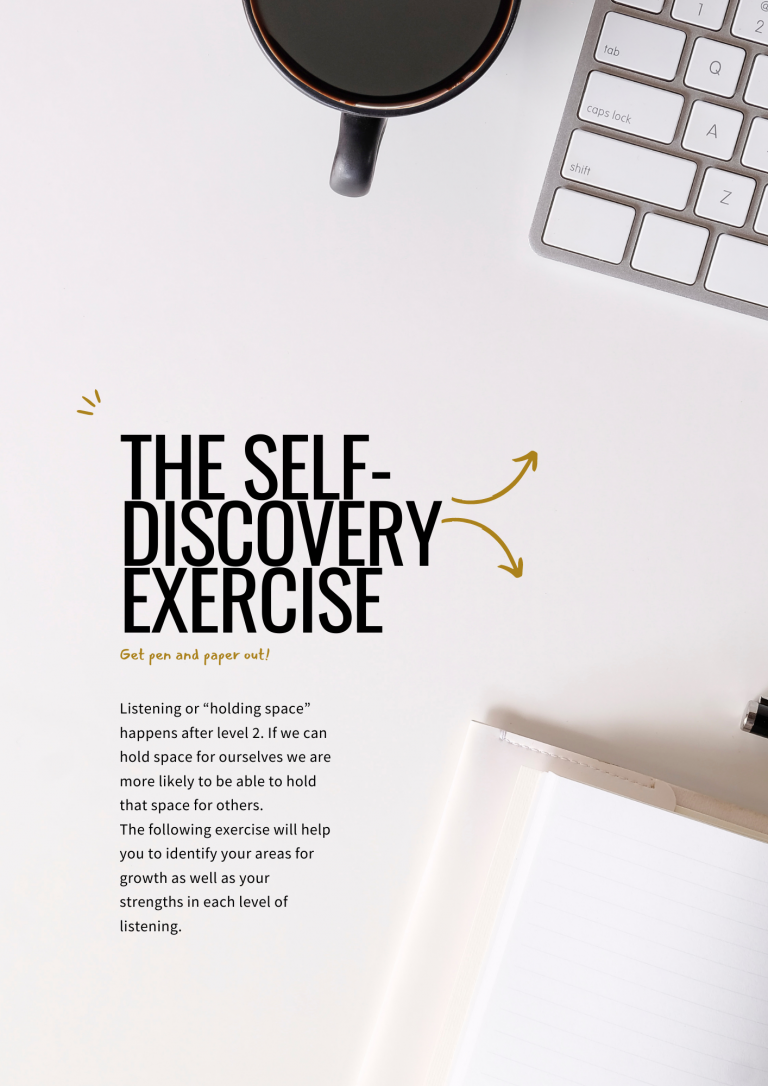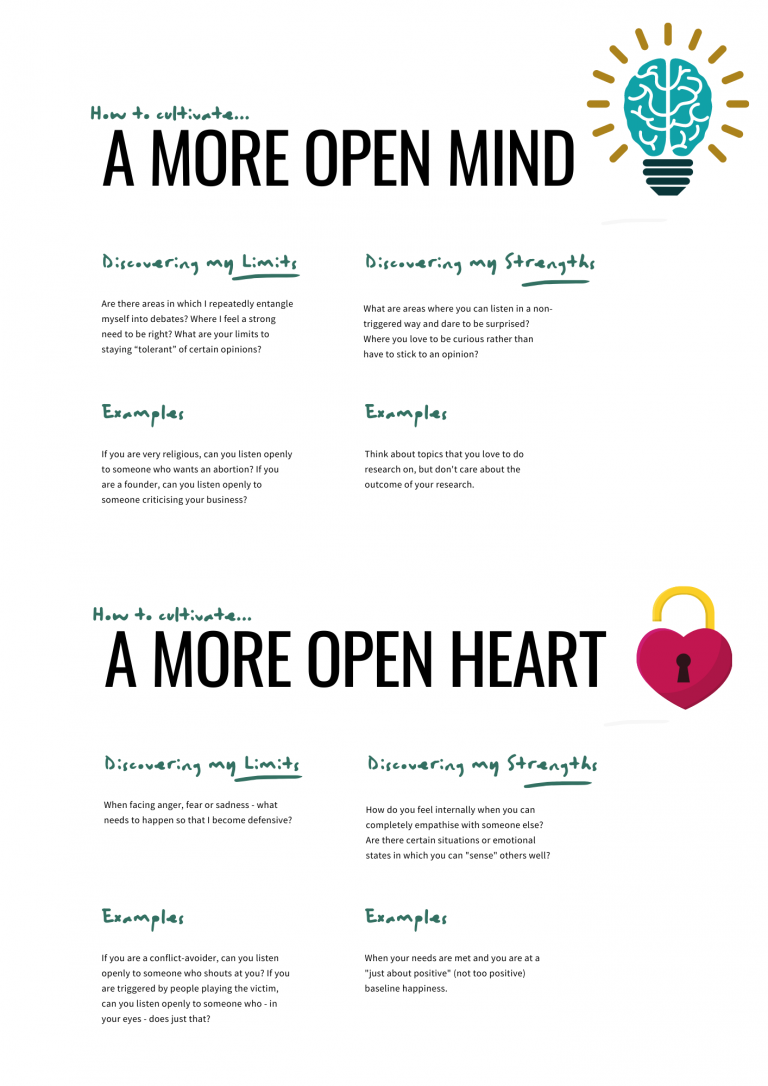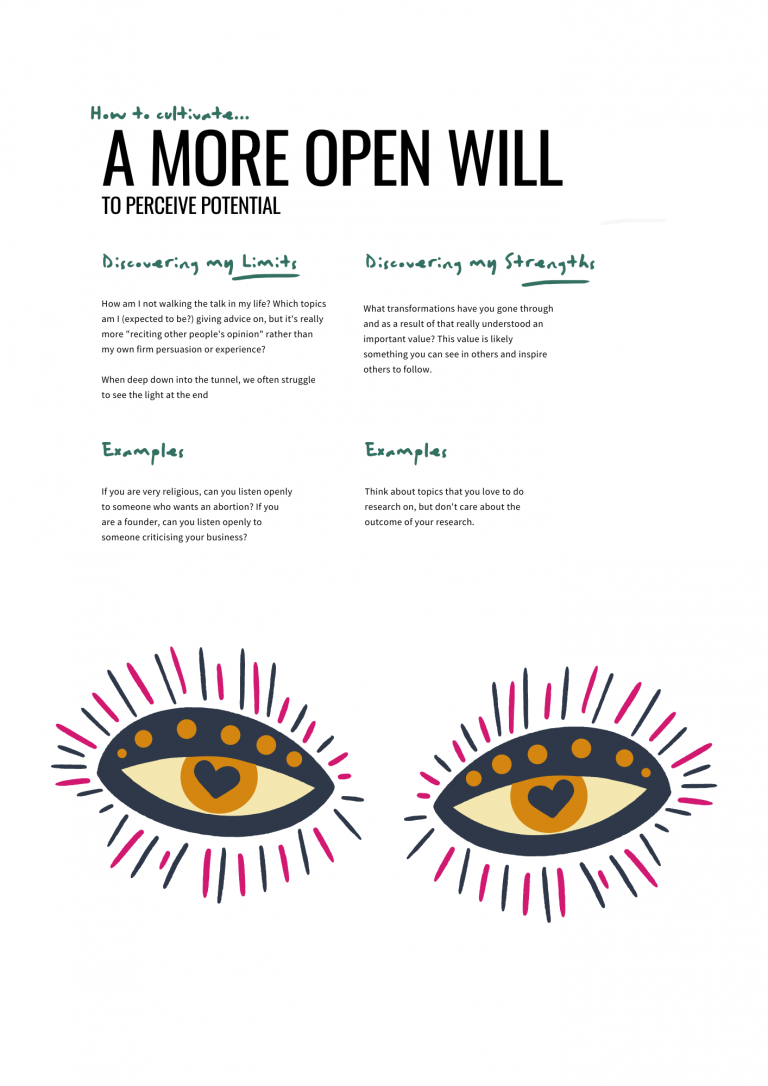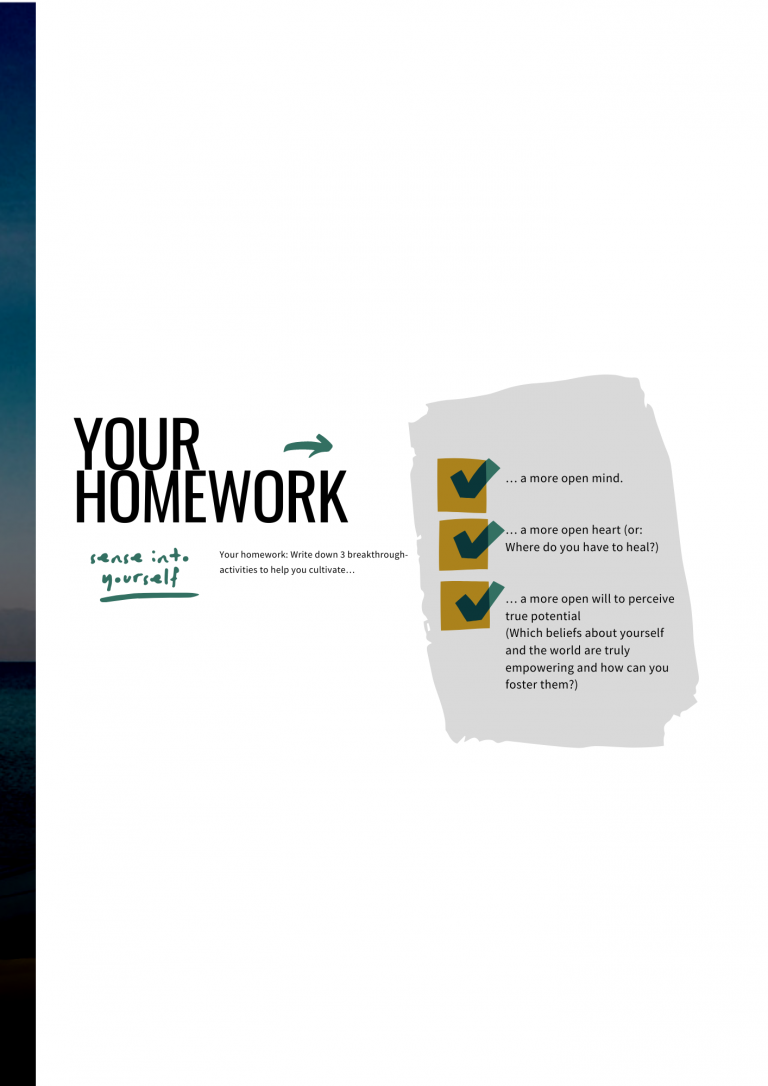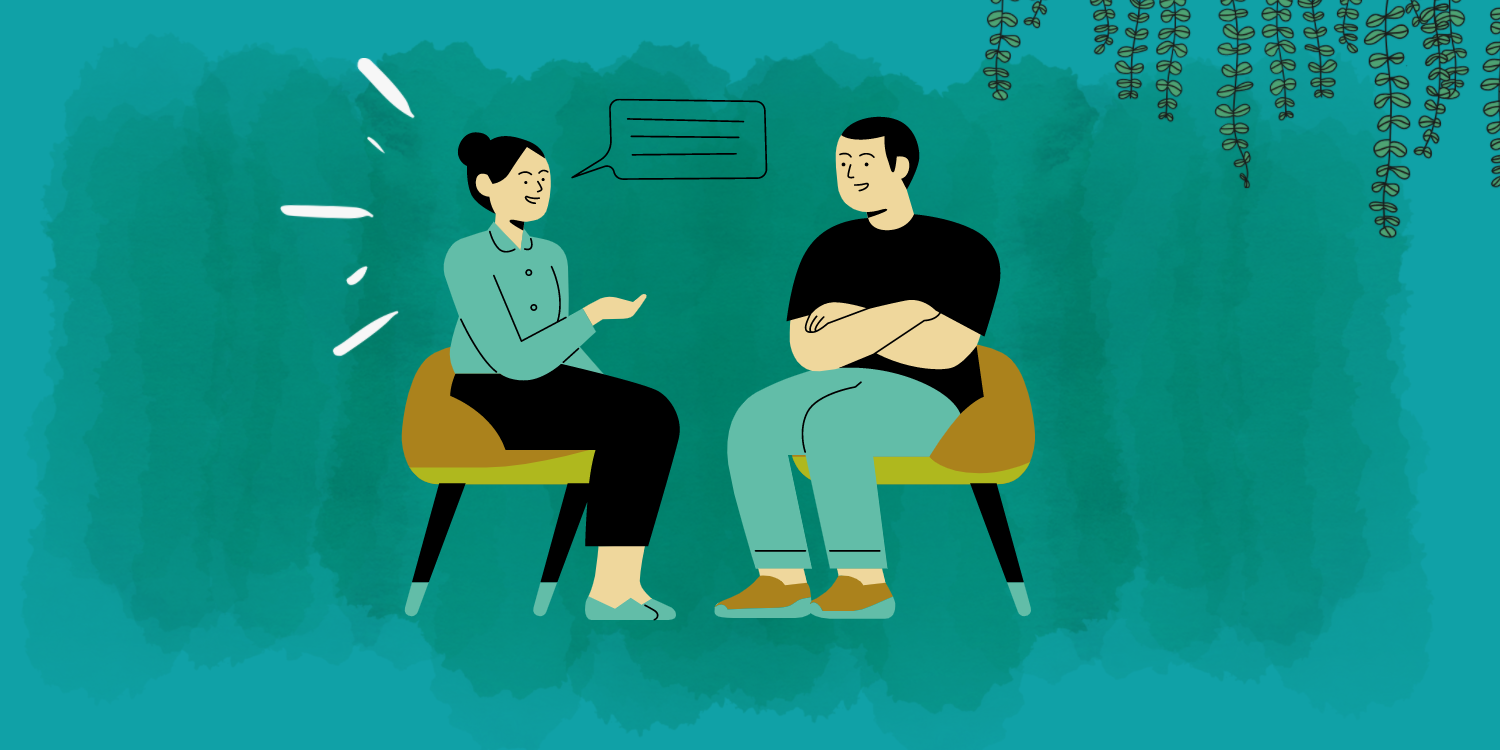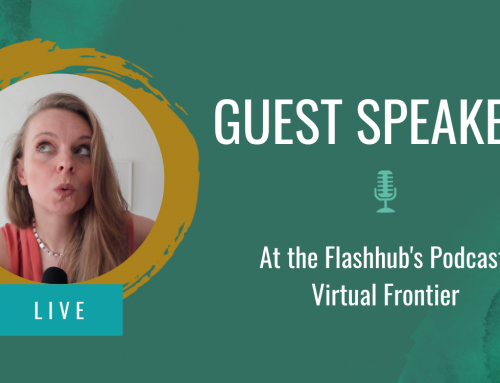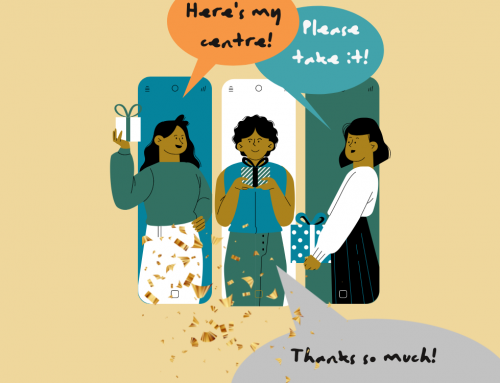We have all heard of people who make others grow simply by listening to them?
Like: Timid people become more courageous. Those who are clueless suddenly see their creativity spark again. The sad find hope and the agitated peace.
Today is about HOW to cultivate exactly that skill of: Transformative listening.
Self-Coaching Guide for Download
Let’s start!

Dissect listening and you will find that it means to observe and to interpret what you observe within yourself – in order to prepare an adequate response.
And we agree that it is some of the most underrated skills in management.
Listening makes the difference whether your teams or you yourself do the right move or say the right thing at the right time.
Your ability (or lack thereof) to listen can make or break you.

When you google “how to listen” you tend to end up with obvious kitchen psychology like:
- Sitting and paying attention
- Making eye contact and “nodding” occasionally
- Using “I-messages” rather than “you”-messages
Or (we love this one by the Harvard Business Review):
- Not talking when others are speaking!
With all that highly obvious advice out there we believe it is high time to dive into what we believe to be one of the most powerful listening frameworks in leadership development and coaching.
The Four Levels of Listening
…by Otto Scharmer, Professor at MIT but originating from Germany, namely Hof Dannwisch which is an organic farm close to Hamburg (ok, enough of that).
So what is the secret to being a great listener?
According to this model it is the intention with which you listen.
Let’s try and understand what this means.

Level #1 Downloading | It’s all about me.
Downloading is by far the most common way of listening. Downloading means: to listen and simultaneously classify whichever information our senses are absorbing into our existing preconceptions. We are listening but looking for overlap of what is said and what we believe.
Strictly speaking downloading isn’t listening as it is pretty self-serving and does not always keep what it promises, namely listening.
As a downloader we are in it, because we want to be challenged, confirmed or inspired. Or maybe we are just looking for a mistake. We are in one way or another triggered. Not being confirmed in one way or another means stress to our system. This can stress so light that it is hardly detectable, but it is enough to make the listening experience about us rather than them. And that micro-moment of a cortisol rush may just be enough for us to ask a leading question or interrupt with a comment.
As Stephen Covey put it: “The biggest problem with communication is we do not listen to understand. We listen to reply.”
Examples:
- When you are sitting in a conversation, someone shares something and you feel (and follow) the urge to comment!
- When you are in a brainstorming meeting, someone starts the timer and there is a (for you unbearable vacuum) of silence, so you throw in some low quality idea or you start commenting on the process (“This wasn’t a good idea!”) before anyone could even breathe.
- When – after a conversation – you feel like you HAVE to give feedback to someone and think lesser of the other person if they haven’t taken it.

Level #2 Factual Listening | It’s all about the data. Neither me nor them.
In this type of listening we look for facts that are either confirming or disconfirming our reality, however we are open to any outcome. We are not attached anymore to “being confirmed”. Our “hunger to be right” is not an issue. Especially scientists are trained in this: To stay free away from vague gut feelings and follow reason. And to look for errors rather than for confirmation, as “All theory is correct until proven wrong.”
Examples:
- A police detective enquiring two suspects about who stole the book from the library
- A doctor diagnosing whether your ankle is broken or merely strained
- Dad trying to figure out if the baby is crying because it is hungry or needs a diaper change
For some this might be a beautiful way to end the article: Listen to facts rather than to all the underlying messy emotions.
Life teaches us though that – indeed, communication happens factual level but also on non-verbal and para-verbal levels i.e. through body language and tone.
So whilst #2 is nice in “theory”, it is not enough to successfully steer the way more more complex human communication.

Level #3 Empathic Listening | It’s all about them.
This means to listen from the point of view of the speaker. It means we have to silence our inner voices and be entirely with the experience of the other person: “Be water, my friend” is a nice metaphor for this kind of listening where we postpone judgement in order to truly understand not just the facts but also the emotional experience the speaker operates from while speaking.
„Empty your mind, be formless, shapeless – like water. Now you put water in a cup, it becomes the cup; You put water into a bottle it becomes the bottle; You put it in a teapot it becomes the teapot. Now water can flow or it can crash. Be water, my friend.“ (Bruce Lee, 1940 – 1973)
Examples:
- A person you dearly love shares a story they never shared before and that makes them feel highly vulnerable
- You are robbed in the streets at night. And next to your purse you also hand your jacket to the thief, because you saw in his eyes that he needs it more than you. (Or a more realistic one: A couple therapist listens to two people who answering how each of them has contributed to their marriage being about to fail)
- Oprah Winfrey!
It’s easy to see how this one’s a tough one as we find it hard to think FROM the position of a person that gives us negative feelings.
However, skilled empathic listeners will perfect the following mindsets (and this might help you, too):
- Nobody wakes up with the intention to be a bad person. People choose the best option they are capable of.
- If I feel attacked or in any other way negative about this person, I am triggered. Do I wanna make this about myself and listen like a “downloader”? Or do I have the inner strength or generosity to postpone my judgement and to find the positive intention behind this seemingly bad behaviour which right now I fail to see?
- (After the conversation: What needs to heal within me so that I can go through such a conversation in a more peaceful state?)
Depending on how triggered we are at times, these might be tough thoughts to go through. One consequence is certain: If done successfully you will improve the experience of the speaker AND the listener.
On the flip side please note that empathic listening is not supposed to be self-torture. It does not mean you have to become the garbage can for other people’s complaints. Just like with generative listening (#4) empathic listening only works when we have effectively mastered our triggers. Like many things in life: This is a journey. We will become better as we train ourselves.

Level #4 Generative Listening | It’s all about a higher purpose.
You are listening from the standpoint of that person’s (or: your situation’s) potential. In a way you are neither with yourself, listening to the facts nor are you with the other person fully. Instead you are listening to: What is trying to emerge in this conversation? Think of it as is a certain value is knocking on the door in order to be lived – and you are listening to the elements the person says/does that are representative of a larger value this person is consciously or subconsciously operating from. While the speaker is talking, generative listeners already notice the arrival of something bigger and greater – potentially something that the speaker fails see themselves.
If this view is conveyed credibly (in most cases this means: you are seeing it for real and don’t just want the other person to see it), the person starts to see it themselves and changes a little. That’s when transformation happens.
Examples (a few more as this seems harder for people to get):
- A famous talent scout hears the incredible beauty in the voice of a gifted but untrained child
- After recovery from a serious disease your partner looks into your eyes saying “I am here, because you believed in me.”
- In the movie Invictus Nelson Mandela (Morgan Freeman) asks football coach Francois (Matt Damon) exactly the questions he needs to hear so that he can inspire the South African football team to win the World Cup
- And let’s take this beautiful and probably best example for generative listening from German literature about a small girl called “Momo” who makes people better people simply by listening to them.
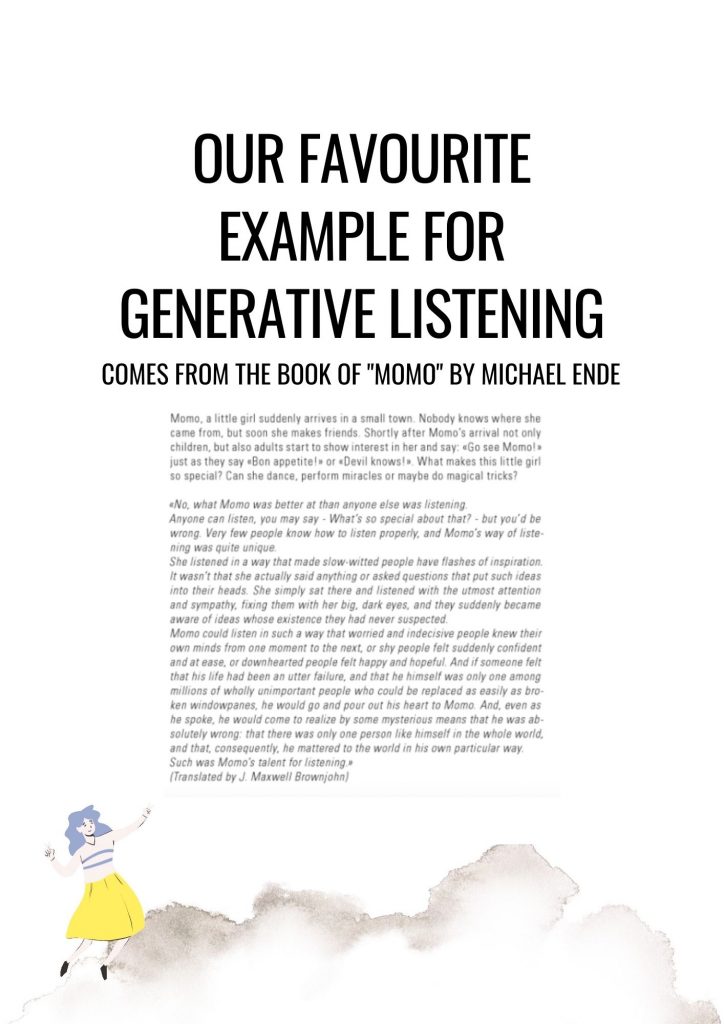
How to apply these techniques to grow ourselves or help others grow
Our ability to master our own hungers and attachments is crucial when we want to step into anything else but “downloading”.
Let’s go through this one by one:
If we aren’t truly prepared (or haven’t trained ourselves)…
…to open up our mind and are triggered when faced with opinions that aren’t our own, we will struggle to welcome any (any!) outcome.
… to open up our hearts and are triggered when faced with emotions we are uncomfortable with, trying to listen empathetically might feel like being used as a doormat or being abused.
… to open up our will to perceive potential when faced with people who others (including themselves) do not see it yet, our attempts to reference some “bigger thing” they are seemingly capable of might be awkward.
A good rule of thumb is: Things that you have mastered yourself, you will find it easier to hold space for. For instance, if you yourself have already gathered the courage to set up your own business, or have overcome a severe disease, you will find it easier to credibly spot the potential for that in others.
A self-discovery exercise on the four levels of listening
Listening or “holding space” happens after level 2. If we can hold space for ourselves we are more likely to be able to hold that space for others.
The following exercise will help you to identify your areas for growth as well as your strengths in each level of listening.
